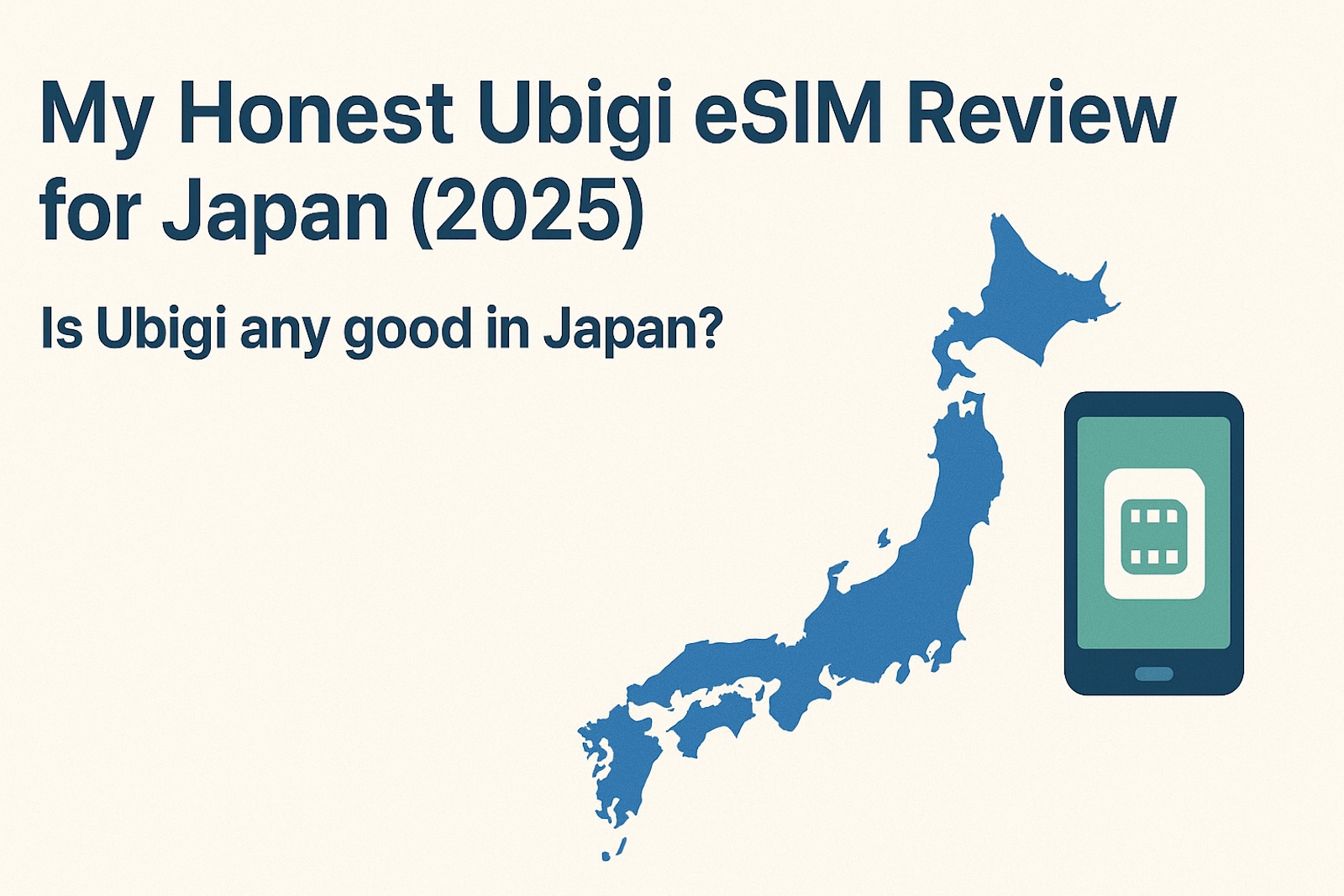
My Honest Ubigi eSIM Review for Japan (2025): What 2,500+ Travelers Actually Experienced
Is Ubigi any good in Japan? We analyzed over 2,500 real user data points from the App Store, Google Play, Trustpilot and reddit to find the truth about its speed, reliability, and value.
“I used Ubigi for my entire 3-week trip to Japan. Honestly, I did have one ‘hiccup’ in Yokohama where it suddenly lost connection, but it fixed itself after I went to sleep and woke up the next morning. Other than that, the signal was great almost everywhere—even in the mountains of Yamaguchi prefecture. I’ll definitely use it again on my next trip!”
When we saw this detailed review from user MintL0ver9, posted on February 14, 2024, in the iOS App Store, we knew it painted a more honest picture of a trip with Ubigi in Japan than any glossy advertisement ever could.
This is the shared experience of thousands of travelers: enjoying the incredible convenience while also, perhaps, encountering a moment of slight confusion. And for you, trying to make sense of all these mixed, authentic voices online can feel overwhelming.
We get it, because we’ve been there too.
To cut through the chaos, we at japannative.com decided to do the hard work for you. Instead of giving you another “Top 10” list, we’re laying out our analysis of over 2,500 user comments and data points sourced from the App Store, Google Play, Trustpilot, and Reddit. This includes a deep dive into over 1,100 reviews with explicit star ratings from the App Store, Google Play, and Trustpilot. All analyzed feedback is strictly from users commenting on their experience using the service in Japan. Our only goal is to share what we found, so you can feel confident in your choice.
Who is Actually Behind Ubigi? A Quick Look
Before we dive into the data, it’s helpful to know who you’re dealing with. Ubigi isn’t just some random app; it’s the consumer brand of Transatel, a global connectivity expert. Here’s the key part for travelers to Japan: Transatel is a subsidiary of NTT Communications, which in turn is part of the NTT Group, one of the world’s largest telecommunications companies.
While this lineage suggests a strong foundation, it’s important to note that Ubigi, like many global eSIM providers, partners with multiple local carriers to ensure broad coverage. In Japan, their primary networks often include NTT Docomo and KDDI. This means your service quality can depend on which network your phone connects to in a specific area, but it also gives you the flexibility of leveraging more than one top-tier network.
The Big Picture: What’s the Real Verdict on Ubigi?
Before diving into the details, let’s look at the overall sentiment. Across all platforms, the user rating distribution for Ubigi shows a clear trend.
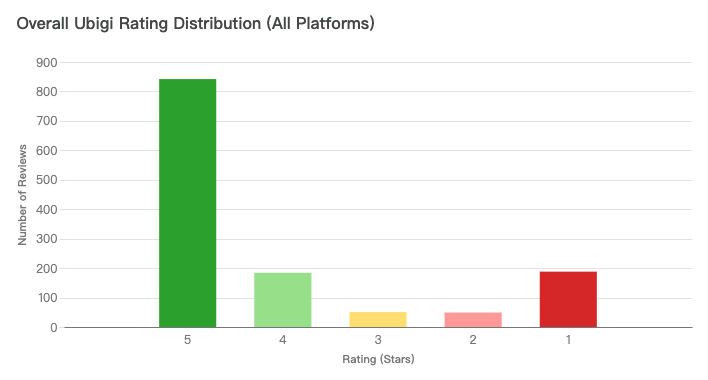 (Chart 1: Ubigi’s Overall Rating Distribution from App Store, Google Play & Trustpilot for use in Japan)
(Chart 1: Ubigi’s Overall Rating Distribution from App Store, Google Play & Trustpilot for use in Japan)
This chart tells a clear story: the vast majority of users give Ubigi a high rating of 4 or 5 stars. This indicates that for most travelers in Japan, Ubigi delivers a satisfying service. However, the ~17% of users who left 1 or 2-star reviews are a warning sign we can’t ignore. In the following sections, we’ll dig deep into the reasons behind both the high praise and the sharp criticism.
The Good Stuff: What Do Users Actually Love? (Praises)
Our data shows that positive feedback clusters around a few core experiences, which form Ubigi’s main competitive advantages in the Japanese market.
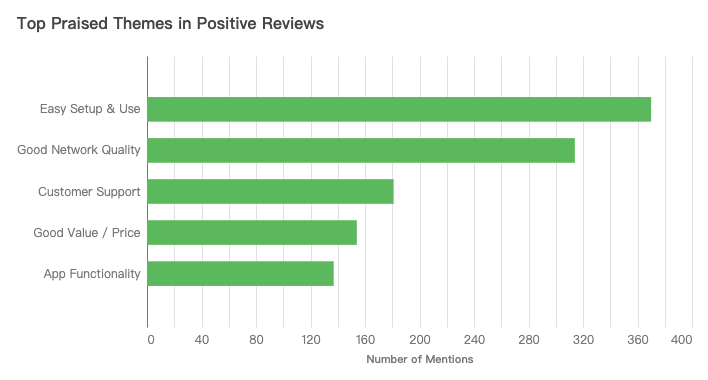 (Chart 2: Top Themes in Positive Reviews)
(Chart 2: Top Themes in Positive Reviews)
1. Convenience (Easy Setup & Use) - The Biggest Win
“Easy,” “seamless,” and “convenient” are the most frequent words in positive reviews. A huge number of users praised how intuitive the Ubigi eSIM activation process is. From downloading the app to buying a plan and activating it upon landing, the entire experience requires no complex configuration. This “plug-and-play” experience is a lifesaver for travelers exhausted from a long flight.
2. Network Quality (Good Network Quality) - Stable in Most Areas
This is the second most-praised aspect. The data shows that users found the network “fast” and “stable,” especially in major cities like Tokyo, Kyoto, and Osaka. One Google Play user, Torgeir Holm, commented: “Used it for three weeks in Japan, and the fast, stable connection felt just like using my own 5G plan back in Norway.” Our location analysis confirms this, with Tokyo being the most mentioned city, overwhelmingly in a positive context.
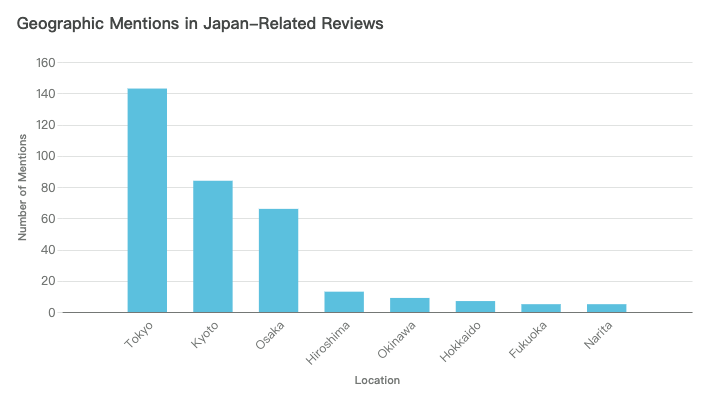 (Chart 4: Geographic Location Mentions in Japan)
(Chart 4: Geographic Location Mentions in Japan)
3. Value for Money (Good Value / Price) - A Relatively Affordable Option
After comparing it with physical SIM cards at the airport or other eSIM services, many users found Ubigi’s pricing to be “reasonable” and “cheap.” A user named Andrew Hotte mentioned, “I compared it with several other apps, and Ubigi was the cheapest.” For budget-conscious travelers, this is undoubtedly a major plus.
The Honest Truth: What Are People Complaining About? (Objections)
As the rating chart showed, Ubigi isn’t perfect. The complaints from users who left 1 and 2-star reviews are just as important, as they help us understand the potential risks.
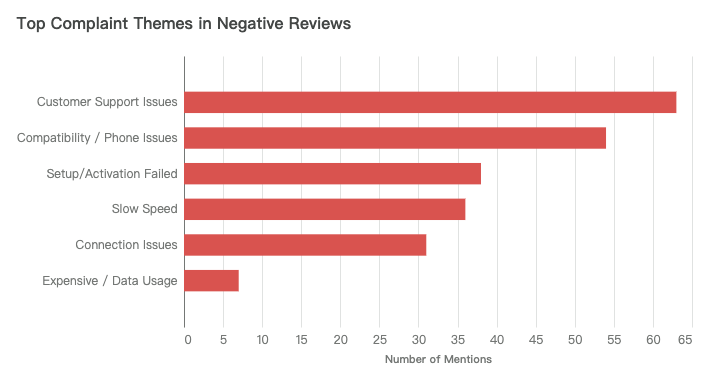 (Chart 3: Top Themes in Negative Reviews)
(Chart 3: Top Themes in Negative Reviews)
1. Connection Issues - The Biggest Pain Point
“Disconnected,” “no signal,” and “stopped working” are the core keywords in negative reviews. Some users reported that their eSIM would suddenly disconnect for no reason during their trip and wouldn’t come back for minutes or even hours. This can be disastrous when you urgently need a map or to check train schedules. Simon Bui encountered this very issue on his Pixel phone: “I personally experienced frequent signal drops, which was really frustrating when I needed to decide which train to catch.”
2. Customer Support Issues - Slow to Respond
When problems arise, getting timely and effective help is crucial to the user experience. Our data shows that “customer service” is the second-biggest source of complaints. User Daniel Fischer noted, “The help documentation is outdated, and the customer service responses are slow, generic, and unhelpful.” This is a reminder that choosing Ubigi might mean you need to be prepared to solve problems on your own.
3. Slow Speed - A Bottleneck in Certain Situations
A portion of users complained that the internet speed didn’t meet their expectations, especially when the signal strength was only 1-2 bars. While user michael46372 gave a positive review, he also offered a friendly warning: “Don’t expect it to be fast… If you’re on a business trip and need to work, you’re better off finding a wired WiFi connection.”
Your Game Plan: How to Use Ubigi Like a Pro
Based on this data, we’ve distilled the following practical tips to help you get the most out of your Ubigi eSIM:
-
1. Set It Up Before You Leave: This is the most critical step. For a stress-free process, check out our detailed guide on how to install Ubigi while on your comfy home Wi-Fi.
-
2. Have a Plan B - Get a Backup eSIM: Given the occasional connection issues, a smart traveler always has a backup. A great strategy is to buy A great strategy is to buy a cheap, low-data, long-term plan from another provider. You can check out our homepage. to explore other brands and choose the one that suits you best.
-
3. Have a Plan C - Understand Your Home SIM’s Roaming (with a Warning!) 🚨 Strong Warning: Consider checking your home carrier’s international roaming options for emergencies ONLY. Be extremely clear with them that you are NOT activating a data roaming plan, which can be incredibly expensive. You are only ensuring your line can receive a crucial SMS or make an emergency call. Keep data roaming for your primary SIM turned OFF on your phone to avoid massive bills.
-
4. Download Offline Maps: This is a fantastic tip verified by multiple users. Download Google offline maps for the areas you’ll be visiting ahead of time. Even if your internet connection temporarily drops, your navigation won’t be affected.
-
5. Try to Troubleshoot Yourself First: Since customer support can be slow, if you encounter an issue, first try restarting your phone or toggling airplane mode.
The Verdict: Is Ubigi the Right eSIM for Your Japan Trip?
Let’s return to our original question. The data tells us this:
Ubigi is an excellent choice for travelers who prioritize great value and maximum convenience, plan to spend most of their time in Japan’s major cities, and have some basic ability to troubleshoot minor issues themselves. For these users, Ubigi offers a hassle-free internet solution at a relatively low cost.
However, you should think twice if you are:
- A business traveler who needs an absolutely rock-solid connection.
- An adventurer whose itinerary includes extensive travel to remote mountains or rural areas.
- A user who gets anxious about tech issues and relies heavily on customer support.
Ultimately, there’s no single “perfect” eSIM, only the one that’s perfect for you. We hope this deep dive, built on the experiences of over 2,500 real users, helps you make the most informed choice.
FAQ (Your Questions, Answered)
1. Does Ubigi support 5G in Japan? Yes. Ubigi officially supports 5G in Japan. However, your ability to connect depends on your specific location being within a partner carrier’s 5G coverage area and your phone’s settings.
2. Which local carriers does Ubigi partner with in Japan? As mentioned, Ubigi primarily uses the NTT Docomo and KDDI networks in Japan, both of which are top-tier carriers with extensive coverage.
3. Where should I go for help if I run into problems?
Ubigi’s official Help Center is https://cellulardata.ubigi.com/help-center/. However, we recommend first trying the self-help methods mentioned in our “Game Plan” section or our installation guide.
4. How is Ubigi’s signal in areas outside of Tokyo, like Hokkaido or Okinawa? Our data shows that discussions are centered on major cities like Tokyo, Kyoto, and Osaka, where feedback is generally positive. For regions like Hokkaido and Okinawa, there are fewer mentions. If you plan to travel extensively in these areas, be prepared for the signal to be less stable.
5. Is Ubigi’s speed fast enough for video calls or streaming? In major cities with good signal, the speed is sufficient for maps and social media. However, for high-bandwidth activities like HD video calls or streaming, some users found it to be a struggle. We recommend saving these activities for when you’re on a Wi-Fi network.
Ready to Start Your Japan Adventure?
A fantastic, budget-friendly choice for most travelers sticking to Japan's main cities, as long as you're cool with a little self-service.
Check Deals on the Official Ubigi eSIM for Japan Site